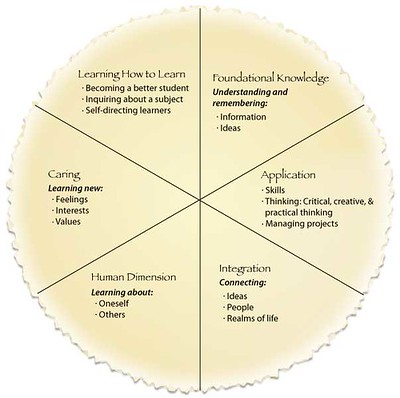“You know what you have to do…. Now do it.”
–Duke, Rocky IV
“Unprecedented.”
“Uncertainty.”
“Worry.”
Our experience of a pandemic and a lot more going on, near and far.
And now here we are staring down the spring term.
Part of us wants to hearken back to the good old days when we were getting ready to meet our students in person, with some measure of the hopefulness and fresh-start-at it-ness of a new spring term in front of us. We think: I can’t wait to get back to that form of teaching.
Part of us, we have to admit, is looking toward the horizon and anticipating, in one way or another, maybe hopefully, the new modalities of teaching that are to come.
But mostly we’re quietly panicking a little that there are almost only two weeks left before it all begins and we have to start reacting. And, well, it seems like it already started, with meetings and Zoom calls and reaching out to students with an urgency, for this time of year, like never before.
The support team started talking in earnest about the spring when we thought we had so much time, two whole months, in front of us to get ready. Suddenly, everything crashes in and we only have two weeks left. Where did all of that time go?
In these conversations, some of the ways of thinking that I had to adopt felt, frankly, somewhat new and different for me. I’m talking about me as a teacher, and it came from having a wider perception of things at Castleton and colleges around us. One of the big ways of thinking I recognized: I was having to listen to students differently than I had before.
We are getting more and more data about what the student experience was like in the fall. As I reported earlier, the news is that we are doing all right. Maybe someone wondered if it would be a disaster. I never did. I worked with 100 faculty members over the summer, all of whom wanted to do this right. And I think that reflects the vast majority of faculty sentiment. So I didn’t have any doubts, and the data confirm it. Compared to what people are saying about Higher Education in general and some specific kinds of stories that go around the list-serves with colleagues at other institutions, we are doing well and will do even better this term. You can see a snapshot of some student survey data about Canvas in the Have You Seen… page in this issue, and you can get a bigger picture of those data when you come to the VSC Canvas workshops on Friday morning.
For old-timers like me, a lot of that information about student opinions gets filtered through a sieve of experience and expertise, and I make a variety of decisions about “what’s good for them” and how students “just have to go along with it” in order to access what I have to offer. It’s worth it for them. But in this situation, I’m listening in a different way.
The ad hoc committee on online learning that published the Principles for Remote Teaching at Castleton this summer, met and discussed the data and we decided to issue a statement on The Case for Standards in Canvas Use based on what we had learned, and I urge you to keep them in mind as you set up your courses and plan your time for the next couple weeks. The committee recommended to:
- Organize your course in a way that makes it easy for students to do what you want them to do;
- Be present in the course as a personable expert;
- Use Canvas assignments with due dates and keep track of them in the gradebook.
These ideas informed a self-reflective survey that the support team invited faculty to take at the end of last term, and more resources on these recommendations can be found on Canvas. These are really basic steps, and I speak from experience when I say that doing some of these things, like setting up a gradebook, takes much longer in our anxiety as we imagine having to learn it than it actually takes when you sit down to do it. If more of us can take these basic steps, it will improve the overall student experience tremendously.
Like Duke says in Rocky IV, though, you know what you have to do.
But, “It’s a marathon, not a sprint.”
So, maybe focus on one thing to improve as you start to think more seriously about setting up your spring courses.
The support team is here to help:
Remote Delivery Resources: You will find resources that the support team has created in the Remote Delivery Resources site or they are linked to from that site. You’ll find a lot there, and I will just remind everyone that you each have a membership in the Online Learning Consortium which offers all kind of webinars, workshops, and other resources on the specific skills you want to get better at. The topics of this issue of The Educator and this post are covered in more detail in the items we are collecting for you in the Spring 2021 module. You will also find a recording of the workshop with David Katz and some follow-up materials there.
Course Templates: In the Spring 2021 module you will find links to course templates. We have templates that help to set up a very basic course organization, and we have templates that are much more detailed and walk you through some best practices for online course design. At least one department has adopted a common template; it’s not a bad idea.
Instructional Design Consultants: You can work with one of our Instructional Design Consultants who will meet one-on-one with you for one, two or weekly sessions, whatever you will find helpful. I know that most of us take pride in our independence and our judgments about teaching. But it is no slight against that to get the opinion of a professional who is also working out there in the wider fields. Ask for advice, ask for help building something, or simply ask the consultant to build it or set it up for you. These are external consultants, and all interactions are strictly confidential. Write to CUCanvas (goes to Chris, Sarah, and Gillian) and we will connect you with a consultant.
Immediate Support: And of course, the support team, (reachable at CUCanvas @ the school address) is here to help you with individual questions, no question too big or too small.
Upcoming Workshops: Be aware of the two workshops coming up, the next two Tuesdays at 1.
Now do it.




[…] Pedagogy Tips: You Know What You Need to Do (to access resources for spring term courses) […]